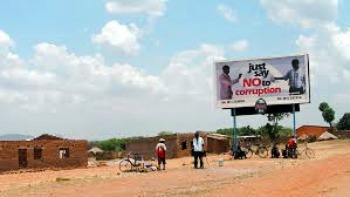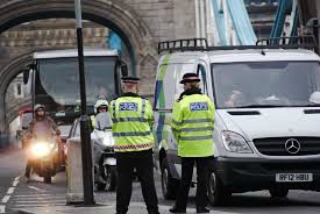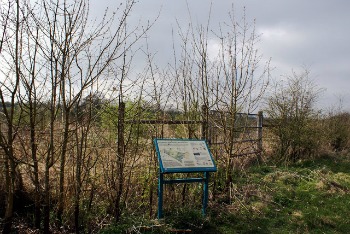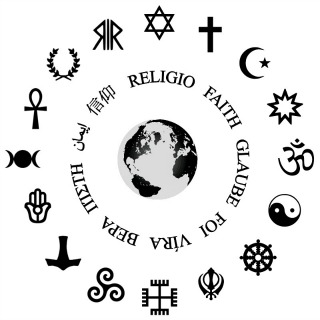If only all things were created equal, many won’t have to suffer anymore from typical issues like poverty, unequal school and work opportunities, and access to healthcare while some (the elite) spend money on luxuries regardless of the price tag. If there is one place here on Earth that epitomizes the face of poverty, that would have to be Africa. How many times have you heard/ reprimanded to finish your meal because there are millions of Africans suffering from hunger. It’s true that Africa is one of the poorest places in the planet despite being rich in natural resources.
 The truth is corruption is usually the cause for poverty in any nation. Public funds that are supposedly intended for the delivery of basic services go into the pockets of corrupt leaders who are only after of what they can gain from public office. Public service means little to them and they don’t care that thousands die from starvation or that famine is spreading in many places in Africa because the government has no funds to provide for them.
The truth is corruption is usually the cause for poverty in any nation. Public funds that are supposedly intended for the delivery of basic services go into the pockets of corrupt leaders who are only after of what they can gain from public office. Public service means little to them and they don’t care that thousands die from starvation or that famine is spreading in many places in Africa because the government has no funds to provide for them.
Natural and man-made disasters, armed conflicts, widespread corruption and deep social inequalities have been so far a dramatic source for most news coverage when it comes to Africa, the world’s second-largest and second-most-populous continent on Earth, which hosts 54 states spreading over 30 million square kilometres that are home to over 1.2 billion people.
Nevertheless, an often neglected fact is that this vast continent with huge natural resources –which have been systematically depleted by private –and also in cases, state-owned corporations— registered an economic growth of around 4 per cent in 2014, “creating one of the longest stretches of uninterrupted positive economic expansion in Africa’s history,” according to the United Nations.
(Via: http://www.ipsnews.net/2017/05/africa-more-than-just-conflicts-corruption-disasters/)
Africa is such a big and rich continent but its resources are not put into good use. You can see poverty wherever you look. Many of the children are severely malnourished and even the animals suffer too. Poor and underdeveloped countries are more likely to suffer from corruption than the progressive ones. Even armed conflicts have prevented non-profits from sending valuable supplies, thereby making the rest of the African population die in vain.
More wealth leaves Africa every year than enters it – by more than $40bn (£31bn) – according to research that challenges “misleading” perceptions of foreign aid.
Analysis by a coalition of UK and African equality and development campaigners including Global Justice Now, published on Wednesday, claims the rest of the world is profiting more than most African citizens from the continent’s wealth.
It said African countries received $162bn in 2015, mainly in loans, aid and personal remittances. But in the same year, $203bn was taken from the continent, either directly through multinationals repatriating profits and illegally moving money into tax havens, or by costs imposed by the rest of the world through climate change adaptation and mitigation.
Even other nations benefit from Africa’s rich resources while millions of Africans don’t even have access to the most basic of services such as access to food supplies and clean water. What an irony that they get looted of their country’s richness while made to look poor by the rest of the world. In all honesty, Africa is not only a rich country but a beautiful one too that is also home to many wild animals you no longer get to see in other countries except in zoos. Despite these natural attractions, though, issues of poverty, corruption and security are among the first to come to mind of tourists when they hear the word Africa.
Many of African countries which preceded Tanzania in privatizing their mining activities never experienced any blessings but their people are suffering under abject poverty. Nigeria is first in the list, then Ghana and Angola; and the list goes on.
It was thus hoped for Tanzania that could record a different picture because it would have learnt from other countries. But as the things are now unfolding following Presidential Committee on concentrates saga report (if proved true); Tanzania is falling on the same pit.
While natural resources like minerals and oil were source of blessings and development in other societies like those of Nordic countries and Northern America, the contrary is what prevailing in African continent. In Africa, more natural resources bring up more curse and poverty!
(Via: http://allafrica.com/stories/201706050150.html)
As many Africans suffer in ignorance and poverty, its many leaders take care of their personal interests at the expense of the people. African minerals are squandered by other people and little revenue goes back to the country. What a shame, indeed. Politicians don’t do their jobs of protecting the people’s interests. It’s the reason why the government itself can’t provide primary services for free like what most progressive nations do. Aside from that, even the help extended by NGO’s don’t get to its intended recipients making the poor Africans suffer even more from poverty and famine that is sweeping many places in Africa right now.
The following article Corruption Is To Blame For The Widespread Poverty In Africa Find more on: Naked Conversations
from
https://www.nakedconversations.com/corruption-is-to-blame-for-the-widespread-poverty-in-africa/





